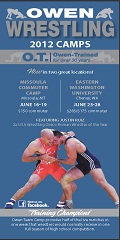FairnessóNot menís sportsóis
Title IXís real casualty
By Carrie Lukas
Friday,
October 27, 2006
Fairness: itís one
of the most prized values in American society. In our education system, fairness
requires that schools and universities judge students on their merits and offer
equal opportunities to all students. Yet fairness becomes a different measuring
stick when itís applied to gender issues on campus: one thatís used to prod
women toward greater achievement and whack men. James Madison Universityís (JMU)
recent decision to eliminate ten sports teams is the latest example of the
bizarre world of gender fairness on campus.
For more than three
decades, colleges across the country have struggled to comply with the federal
statute, Title IX, which banned discrimination in athletics. The lawís purpose
was to encourage schools and universities to ensure that women, like men, had
the opportunity to participate in sports. Thatís a goal that Americans
whole-heartedly support. Itís only fair, after all, that women enjoy the many
pleasures and benefits of athletic participation.
Yet, in practice,
Title IX now does more to squelch menís athletics than to encourage female
athletes. Consider that JMUís athletic roster was already 50 percent men and 50
percent women before the recent cuts that were designed to comply with Title IX.
Equal numbers of men and women athletes certainly sound fair. The problem for
JMU is that 61 percent of their student body is female. To meet Title IXís
proportionality testóthe most incontrovertible standard and therefore the least
likely to yield a lawsuitórequires that at least 6 in 10 student-athletes be
female.
James Madison
University plans to eliminate seven menís teams (archery, cross country, indoor
and outdoor track, gymnastics, swimming and wrestling) and three womenís teams
(archery, fencing, and gymnastics) in July. Just six menís teams and twelve
womenís teams will remain and the combined athletic rosters will magically
become 61 percent female.
Campus gender
warriors would expect university women to celebrate. To the radical feminists
who populate womenís studies programs around the country, this is the definition
of womenís progress. There may be fewer female athletes next year, but men will
be even worse offóa feminist victory!
Yet JMU coeds are
reacting very differently. In an interview with the New York Times, Jennifer
Chapman, a senior on the womenís cross country team, described members of the
womenís team crying along with the men at learning the news of the menís teamís
elimination. Chapman helped organize a student protest that drew an estimated
400 participants. The New York Times article noted that JMUís announcement had
been followed by ďa surprising number of female students denouncing Title IX.Ē
It should come as no
surprise, however, that women are denouncing a law that has ended the sports
careers of so many male athletesótheir friends and teammatesónot just at JMU,
but at schools across the country. Earlier this year, Rutgers University cut
five menís teams (heavyweight and lightweight crew, fencing, swimming and
tennis) along with womenís fencing. Last year, Fresno State eliminated menís
wrestling despite a pledge from alumni to completely fund the team. UCLA cut
menís swimming and gymnastics, teams that had produced more U.S. Olympians in
their respective sports than any other school in the country. In recent years,
more than ninety universities have eliminated menís track and field, and more
than twenty have cancelled wrestling.
This is not good
news for women. Itís also not good news that women increasingly outnumber men on
college campuses. Itís wonderful, of course that so many women are succeeding in
education and earning degrees. But what about the men? Women and men alike
should be concerned about how boys are falling behind in American education. Too
many boys are disengaged from school, dropping out of high school, and forgoing
college. Policymakers need to consider the causes of this disturbing trend and
ways to make our education system work better for boys.
Defenders of the
existing Title IX regime will claim that JMUís dramatic actions werenít
necessary to comply with the law. There are other ways schools can demonstrate
their commitment to gender equality. Yet JMU was certainly adhering to the
spirit of what constitutes fairness on gender issues on college campuses today.
This should serve as a wake up call that itís past time to end these gender wars
and to embrace a conception of fairness that doesnít penalize men.
Carrie Lukas is the vice
president for policy and economics at the Independent Womenís Forum and author
of The Politically Incorrect Guide to Women, Sex, and Feminism.















